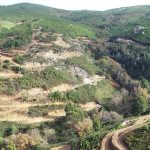BES/Novo Banco: “supervision failed across the board”
The report from the parliamentary inquiry commission into mismanagement and reckless lending at BES and selling assets under value at Novo Banco has reached a damning verdict.
Fernando Anastácio, the author of the report, has presented his preliminary findings and regarding supervision by the Bank of Portugal states, “It failed right across the board and it was as clear as daylight that there was a permanent and systematic failure”.
The Bank of Portugal “always missed the boat when it came to losses and doing anything about the problems that has been identified”.
“The Bank of Portugal identified problems over the years and its administration did nothing,” it added, particularly in relation to the supervision of GES/BES”.
“Where there were mechanisms to act, nothing was done and the Bank of Portugal acted very cautiously in order to avoid being taken to court.”
According to Anastácio, the supervisor’s inaction involved both the governorships of Vítor Constâncio and Carlos Costa.
Another conclusion (there are more than 100) concerns the Costa Pinto report: “Why did the Bank of Portugal order a report into its own supervision and then sit on the findings?”
Parliament has asked the Supreme Court of Justice to lift confidentiality on the report which evaluated the actions of the Bank of Portugal just before the collapse of BES in 2015.
The document has continued to remain secret for almost all, but even so João Costa Pinto who was the author of the report admitted in the inquiry that the central bank had not been “energetic” in dealing with BES problems.
The report concluded that BES was a “fly in the ointment” for the directors of the Bank of Portugal who should have “acted in a timely and robust fashion” and if it had done so, could have avoided the problems at BES.
The report also suggested that Portugal was used as a crash test dummy by Brussels regarding the winding up of BES.
The report indicated that (by that late stage) there would not have been any other solution to the problem of BES “because of the role that the bank had in the economy” and there was “no other model available to resolve the problems.”
Nevertheless, “we feel that we were guinea pigs and a test case exercise for the European Commission,” states the author of the report, pointing out “there had never been any other example to follow of a winding up of a bank under these circumstances in the banking system.”
The preliminary report into Novo Banco also criticised the management of CEO António Ramalho which was not “to be congratulated” and “deserves the criticisms (levelled at it) from the parliamentary commission”
“Novo Banco announced a few days ago that it would once again sell portfolios of NPLs without understanding the risk to its reputation from these sales,” the author of the report said.
The report suggests that the bank’s senior management neither had “the will not the capacity” to remove any doubts regarding “who was actually defining the entire strategy” of Novo Banco, particularly regarding the shareholder Lone Star.
“There is a certain suspicion within Portuguese society in relation to Lone Star, and that fact that no one at the bank has clearly explained the role of the US equity fund in the bank’s future has “raised suspicions” and “created mistrust regarding the parties involved”.










